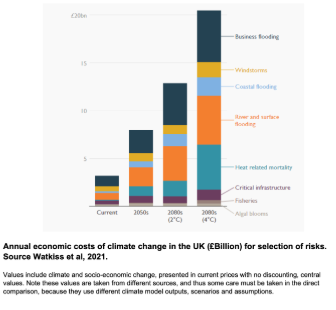Why we cannot have Ethical Billionaires.
- Aug 27, 2024
- 4 min read
By Aarushi Pandey
Edited by Anika Garg

Introduction:
Burdening financial stresses suddenly lifted and extravagant shopping sprees by the week; this is what we picture to be the life of a billionaire. A ‘billion’ is hard to comprehend and much more distant from a million than people think. To put things into perspective: a million seconds are approximately 12 days, a billion seconds are closer to 32 years.
Bernard Arnault is the richest man in the world, worth around $212 Billion, a number we cannot fathom in our minds, and whose size we cannot understand. If you were to earn an American Dollar every single second, it would take 6,726 years for you to reach Arnault’s net worth.
So, how did the current 2,781 billionaires reach their wealth whilst an estimated 648 million people live well below the poverty line on $2.15 a day? Clearly, there is an uneven playing field present; we live in a world where extreme wealth and extreme poverty are able to grow simultaneously with no signs of inequalities being addressed. This article will discuss why a billionaire cannot ethically exist in society.
Company Spendings:
Before CEOs claim their profits, they must pay for the resources consumed by their business, and the people working for them. However, those who want more profits may try to cut these costs down as much as possible so that more goes in their pockets.
Apple mines many natural resources for its products: “tin, tantalum, tungsten, gold, cobalt, and lithium”, mostly from China, Mongolia, and Congo. Once resources are mined, parts are created around the world: Switzerland, Japan, South Korea, and Taiwan – partly the U.S.A. too. Manufactured parts are made into phones in the ‘world’s factory’: China, and then shipped worldwide. After these processes, the latest iPhone model: the 15 Pro Max, reportedly costs $558 to manufacture. It was sold for $1199.
Labour is an expense too: Amazon employs almost 1.6 million people. With a turnover of $574.4 billion a year, you would think that all employees are paid well and can comfortably support their families. Moreover, with Apple’s turnover being $119 billion for their first fiscal quarter of 2024, you would think all their resource mining and labour practices would be ethically and responsibly conducted. However, a growth in profits only drives a need for more, and therefore cost-cutting practices continue to be used, no matter how much the company is already making.
Billionaires’ unethical use of labour:
Meyers, ex-Amazon employee, revealed that: if your van stops “for longer than three minutes, it notifies the delivery service provider” and that his fear of being fired caused “many, (himself) included, to urinate inside bottles”. This is the epitome of unethical practices yet the only way to successfully uphold the consumerist empire that Bezos has built. Amazon sells 1.6 million packages a day in the UK alone, working out to 18.5 a second; workers are forced to operate like machines. With the introduction of Amazon Prime, workers are under the immense pressure of delivering within 24 hours. This is extremely challenging considering the average driver has 150 – 200 parcels to deliver a day.
Amazon does not directly employ drivers; smaller companies employ them privately – causing varying and fluctuating pay. Pay cuts worth “£20 a day” occurred in October of 2021 but workers had to deliver “60 more parcels per shift”. Pay rates also do not cover a full shift: ““a nine-hour delivery round” does not include time waiting to load vans or dealing with undelivered parcels at the end of the day” – another easy method of cost-cutting. Moreover, workers have no right to sick-pay, holiday-pay, or the national living wage due to their private employment. Bezos’ response to frustration is making public anti-union statements and restricting the voicers of workers. Whilst employees work fearfully for 10 hours straight, Bezos is making 315 times their annual pay in an hour. In 2018, it was found the 1/3 American Amazon employees were relying on food stamps: unethical cost-cutting is the only road to make billions.
Apple have been exposed for using child labour; Congolese families even carried out a (now dismissed) lawsuit against Apple amongst other technology companies. Some families, who predominantly mine cobalt, a key mineral, claimed to be paid £1.50 an hour. Despite this being extremely unethical, Apple still use these mines because it is cost-effective: profit outweighs humanity.. In 2013, Apple were found to have 106 child employees, along with workers in Chinese factories having “wages confiscated to pay off debts.”. These are only a few of the company’s malpractices. Without severely underpaying workers and mining unethically, Apple simply could not make the billions it does.
[photos taken from The Guardian, 2013]
Conclusion:
Overall, from a social viewpoint: is it fair for CEOs to hoard billions when their business runs off the backs of others? Amazon and Apple are microcosms of the businesses using unethical practices to increase profit. Truthfully, without Congolese children mining minerals, or unregulated factories, iPhones could not be produced at their current rates – and not for their current cost. If Amazon enforced fair wages and breaks, 1.6 million daily deliveries would not happen. Only through exploitation can one achieve the sheer scale of growth that billionaires do. While their businesses may seem like natural money-makers, a CEO hoarding billions while their employees rely on food-stamps shows a reliance on unethical practices.



Comments